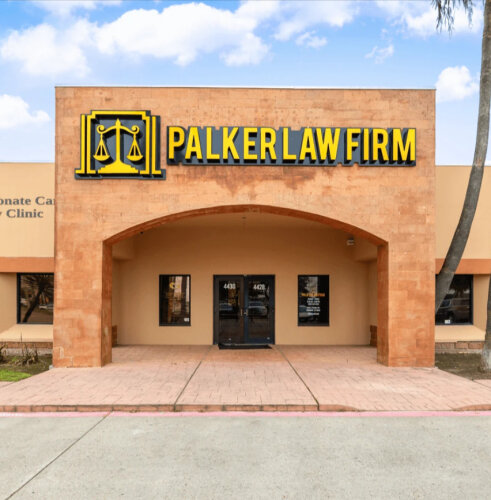Best Insurance Lawyers in Edinburg
Share your needs with us, get contacted by law firms.
Free. Takes 2 min.
List of the best lawyers in Edinburg, United States
About Insurance Law in Edinburg, United States
Insurance law in Edinburg is governed primarily by state and federal law, and by the specific terms of individual insurance policies. Edinburg is located in Texas, so most insurance rules that affect residents and businesses come from the Texas Insurance Code and rules administered by the Texas Department of Insurance. Common insurance types include auto, homeowners, renters, flood, health, and commercial policies. Federal programs such as the National Flood Insurance Program and federal health-care laws also affect coverage and claims in Edinburg.
Why You May Need a Lawyer
Insurance disputes can be complex because they involve policy interpretation, factual disputes about loss or causation, regulatory requirements, and statutory deadlines. You may need a lawyer if any of the following occur:
- An insurer denies or undervalues a valid claim, or delays payment without a good reason.
- You face a coverage dispute where the insurer says the loss is excluded by the policy.
- Your claim involves complex causation issues, such as wind versus water damage after a storm, or whether a loss is covered by flood versus homeowners insurance.
- You receive a bad-faith or unfair-practice notice from your insurer, or you believe the insurer has engaged in deceptive or unfair claims handling.
- You are dealing with a serious auto-accident claim involving bodily injury or significant property damage and liability is contested.
- You need help understanding policy terms, limits, endorsements, or coverages when buying or renewing insurance.
- You are a business owner facing commercial policy disputes, business-interruption claims, or uninsured losses.
- You need to file suit, pursue alternative dispute resolution, or respond to litigation brought by an insurer or third party.
Local Laws Overview
Key legal points that people in Edinburg should know include:
- State regulation: Insurance in Edinburg is regulated primarily by the State of Texas. The Texas Department of Insurance enforces the Texas Insurance Code, which sets rules for consumer protections, insurer conduct, claim handling procedures, and licensing.
- Auto insurance minimums: Texas law sets minimum liability limits for auto insurance at 30/60/25. That means minimum coverage of 30,000 per injured person, 60,000 per accident for bodily injury, and 25,000 for property damage.
- Flood and wind risks: Parts of Hidalgo County and the Rio Grande Valley are prone to flood and storm damage. Flood damage is generally excluded from standard homeowners policies and requires a separate flood insurance policy, often issued through the National Flood Insurance Program or private carriers.
- Workers' compensation: Texas is one of the states where employers are not required to carry workers' compensation insurance. Employers that do not carry coverage may expose themselves to direct lawsuits from injured employees. The Texas Division of Workers' Compensation handles workplace claim procedures for employers who carry coverage.
- Claims handling rules: Texas law contains rules and timelines governing how insurers must investigate and handle claims. If an insurer fails to follow required procedures, policyholders may have administrative or legal remedies.
- Consumer protections and remedies: Texas law provides consumer protections against unfair and deceptive acts by insurers. Policyholders can file complaints with the Texas Department of Insurance and may have private causes of action in court for statutory violations or bad faith depending on the circumstances.
- Statutes of limitation: Time limits apply for bringing legal claims related to insurance. Contract-based claims are commonly subject to a four-year limitation period in Texas, but other deadlines can vary. Prompt action is important.
Frequently Asked Questions
What should I do first after an accident or property loss?
Put safety first. If people are injured call emergency services. Document the scene with photos and notes, collect witness information, and report the loss to your insurer as soon as possible. Save all receipts and communications related to the loss and keep a timeline of events.
My claim was denied - what are my options?
Carefully review the denial letter and your policy language to understand the insurer's stated reason. You can request a detailed explanation, provide additional evidence, and appeal the decision with the insurer. If that fails, you may file a complaint with the Texas Department of Insurance and consider consulting a lawyer to evaluate litigation or alternative dispute-resolution options.
Do I need flood insurance in Edinburg?
Flood risk varies by location. Many standard homeowners or renters policies exclude flood damage, so if you live in a flood-prone area or in a high-risk floodplain, separate flood insurance is important. Federally backed mortgages in high-risk flood zones may require it. Consider a flood elevation and risk assessment when deciding whether to buy coverage.
What are my rights if the insurance company is slow to pay?
Texas law imposes prompt-payment and claim-handling obligations on insurers. If an insurer unreasonably delays payment, you can file a complaint with the Texas Department of Insurance and may have legal remedies, including interest and statutory penalties in appropriate cases. Keep careful records of communications and timelines.
Can an insurance company cancel my policy in the middle of a term?
Insurers can cancel or nonrenew policies, but state law restricts when and how this can be done. Cancellation rules differ by policy type and by whether the policy is within a renewal term. Insurers usually must provide written notice and a valid reason under the applicable statutes or policy provisions.
What does "bad faith" mean in an insurance context?
Bad faith refers to insurer conduct that is unreasonable or unfair in handling claims - for example, refusing to investigate a claim, denying payment without a reasonable basis, or failing to communicate. Texas law provides avenues to challenge unfair practices, but proving bad faith requires evidence about the insurer's conduct and decision-making.
Do I have to accept the insurer's repair estimate or preferred contractor?
Insurers may provide estimates and recommend contractors, but you have the right to choose your own contractor in most situations. Disputes over repair scope or costs can be addressed through supplemental claims, appraisal clauses in the policy, mediation, or litigation if warranted.
What should businesses in Edinburg know about commercial insurance?
Businesses should carefully review coverage for property, liability, business interruption, cyber risk, and employee-related exposures. Pay attention to policy limits, exclusions, and requirements for timely notice of claims. For disputes or significant losses, businesses often consult counsel experienced in commercial insurance to protect recovery and business continuity.
How do I file a complaint against an insurer in Edinburg?
You can file a complaint with the state regulator that oversees insurance. Keep records of your policy, claim numbers, all communications, and a summary of the dispute. The regulator can investigate and may facilitate resolution, but they do not represent you in litigation, so you may still need a lawyer for complex disputes.
How do I find a qualified insurance lawyer in Edinburg?
Look for attorneys who focus on insurance law or personal injury and who are licensed in Texas. Ask about experience with similar claims, fee structures, whether they offer an initial consultation, and how they communicate with clients. Local resources such as county bar associations and lawyer referral services can help you find qualified counsel.
Additional Resources
For help and information in Edinburg consider these types of resources:
- The state insurance regulator that enforces Texas insurance laws and accepts consumer complaints.
- The Division of Workers' Compensation for workplace injury and employer coverage issues.
- National Flood Insurance Program materials and local floodplain management offices for flood-related questions.
- Local legal aid organizations that serve the Rio Grande Valley for low-cost or pro bono assistance.
- Hidalgo County clerk or courthouse for filing civil lawsuits and local filing requirements.
- Local and state bar associations for lawyer referral services and attorney directories.
Next Steps
If you need legal assistance with an insurance matter in Edinburg, follow these steps:
- Gather documents: Collect your policy, declarations page, claim numbers, correspondence, photos, repair estimates, medical records, and any other evidence related to your loss.
- Contact your insurer in writing: Put requests and responses in writing, and keep copies of all communications. Make note of dates, names, and the substance of phone calls.
- File a complaint if appropriate: If the insurer is not responding or you suspect unfair practices, file a complaint with the state insurance regulator after you attempt to resolve the matter with the insurer.
- Seek legal advice: For denials, bad faith, significant disputes, or where litigation is likely, consult an attorney experienced in insurance matters. Many attorneys offer an initial consultation to evaluate claims and potential remedies.
- Consider alternative dispute resolution: Mediation or appraisal may be required or helpful to resolve disputes without full litigation. Discuss these options with your lawyer early.
- Act promptly: Insurance claims and legal remedies are subject to deadlines. Delays can limit your options, so start the process quickly and maintain an organized record of your case.
Lawzana helps you find the best lawyers and law firms in Edinburg through a curated and pre-screened list of qualified legal professionals. Our platform offers rankings and detailed profiles of attorneys and law firms, allowing you to compare based on practice areas, including Insurance, experience, and client feedback.
Each profile includes a description of the firm's areas of practice, client reviews, team members and partners, year of establishment, spoken languages, office locations, contact information, social media presence, and any published articles or resources. Most firms on our platform speak English and are experienced in both local and international legal matters.
Get a quote from top-rated law firms in Edinburg, United States — quickly, securely, and without unnecessary hassle.
Disclaimer:
The information provided on this page is for general informational purposes only and does not constitute legal advice. While we strive to ensure the accuracy and relevance of the content, legal information may change over time, and interpretations of the law can vary. You should always consult with a qualified legal professional for advice specific to your situation.
We disclaim all liability for actions taken or not taken based on the content of this page. If you believe any information is incorrect or outdated, please contact us, and we will review and update it where appropriate.
Browse insurance law firms by service in Edinburg, United States
Edinburg, United States Attorneys in related practice areas.









